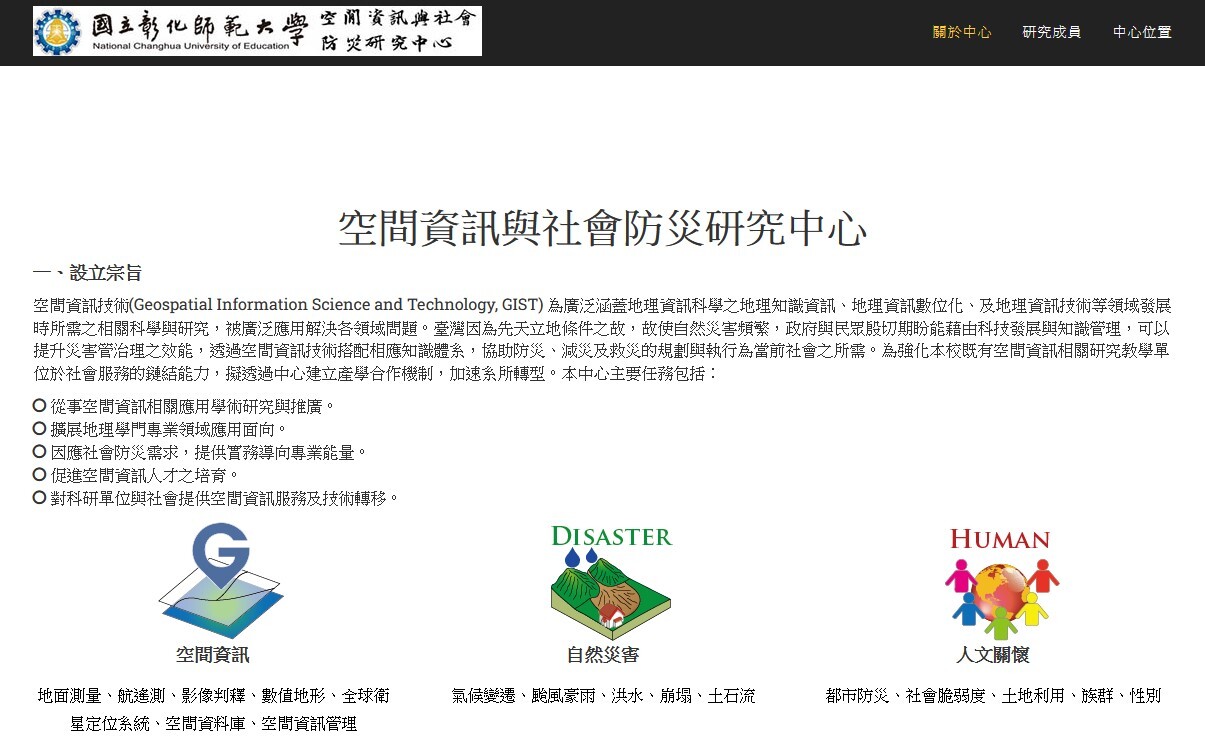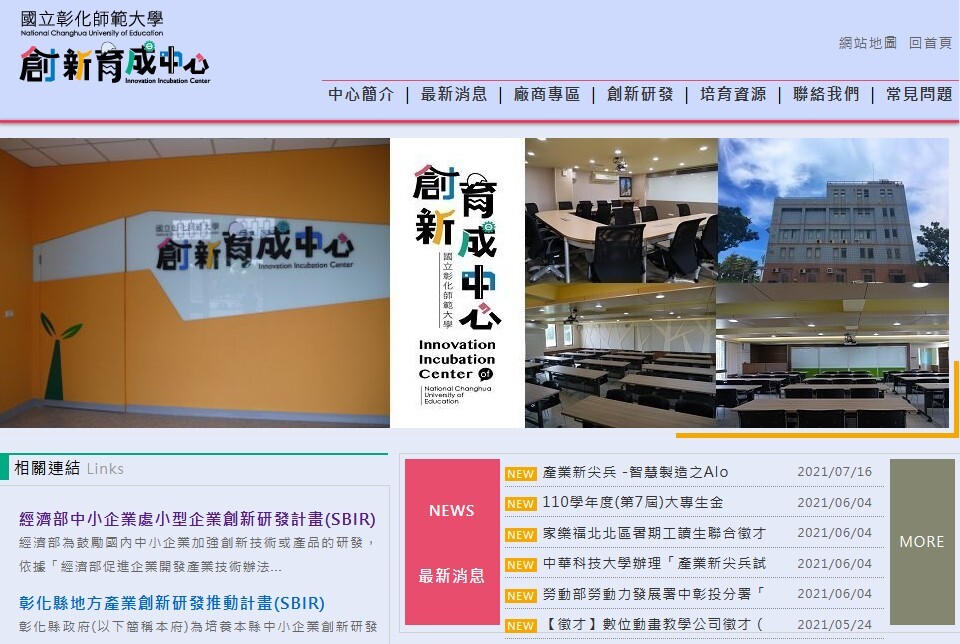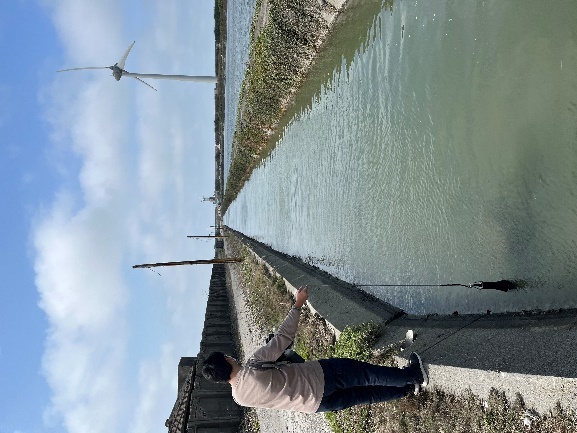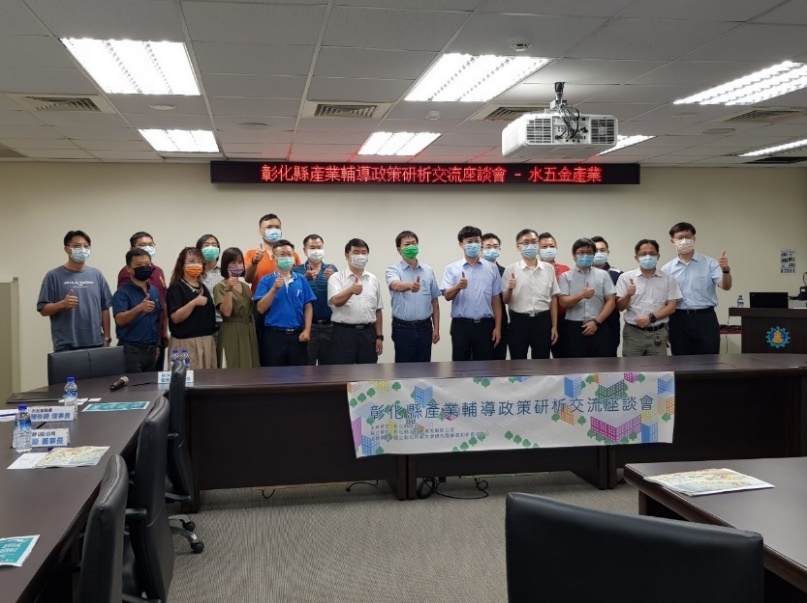SDG 6.5.3 Off-campus water conservation support
NCUE has established a dedicated organization to assist in guiding industries, local residents, and relevant stakeholders in Central Taiwan on strategies and methods for water conservation. This ensures that our students, staff, and local residents obtain knowledge related to sustainable water resources management and that local industries improve their water utilization efficiency, which fosters a sustainable supply and the recycling of fresh water.
1. Administrative organization:
(1)Established the Research Centre for Spatial Information and Disaster Prevention in Society (Figure 1):
|
|
|
Figure 1. Research Centre for Spatial Information and Disaster Prevention in Society |
Natural disasters are frequent in Taiwan. To minimize their impacts, the plan is to improve the effectiveness of disaster management and governance through geographic knowledge and the data provided by geographic information science, technologies, and knowledge management. The goals of water saving and conservation are further achieved through the planning and implementation of disaster prevention, mitigation, and relief. Website:
https://geo3w.ncue.edu.tw/rcgdp/.
(2)Established the Innovation and Incubation Centre (Figure 2):
NCUE has established the Innovation and Incubation Centre to effectively connect with local industries and to advise and improve the local plumbing hardware and other traditional industries, thereby achieving the goals of water saving and conservation. These goals are also realized through active contacts with local industries and by counselling and participating in the SBIR plan. Website: https://www.sbir.org.tw/.
|
|
|
Figure 2. Innovation and Incubation Centre |
2. Research:
(1)Faculty appointment:
Our Department of Geography hires faculty members who are experts in environmental and ecological conservation and who specialize in hydrology to enhance its research capacity in hydrology. Education in hydrology and ecology serves as the starting point for realizing the goals of disaster prevention and mitigation, as well as water saving and conservation.
(2)At the national level:
(a)NCUE participated in the projects “Investigation and Analysis of the Potential Impact of Rainfall and Collapse in the Laonong River Basin” and “Using Forest LiDAR Point Cloud and Hyperspectral Data to Analyze the Spectral Characteristics of Land Features and Tree Canopy” launched by the Forestry Research Institute, Council of Agriculture, Executive Yuan in 2019 and 2020, respectively. With its research capacity, NCUE assisted disaster prevention and mitigation at the national level, with the aim of helping the state achieve its ultimate goals of water conservation and sustainable water resources management and development.
(b)The Department of Geography undertook the “Monitoring of Agriculture, Fisheries, and Social Ecosystems in Taiwan’s Western Coastal Wetlands (1/3)” project (sponsored by the National Science Council), and selected Fangyuan Township as the focus of the research to establish a locally focused pilot station, to conduct a long-term and basic, yet critical, set of observations of the social-ecological system. The Changhua Station has been chosen as the location for long-term social-ecological observation. The observation station also conducts monthly water quality inspections in the ditches of the Wanggong Breeding Area; recently, a survey covering the February–July 2022 period has been completed. In addition to continuous monitoring, it is expected that three water quality monitoring sample points at the Erlin River, Hougang River, and Wanxing Drainage Ditch will be added, and automatic water quality monitoring equipment will be installed for continuous monitoring (Figure 3).
|
|
|
Figure 3. Water quality inspection at the observation station |
3. Industrial cooperation:
Our Innovation and Incubation Centre actively cooperates with local industries, especially the plumbing hardware industry, which has shown excellent development potential. We advise and assist local industries in their transformation, technological upgrades, and improvements to production processes, thereby contributing to the ultimate goal of recycling water resources (Figure 4).
|
|
|
Figure 4. Group photograph of “Symposium and Exchange on Industrial Advice, and Policy Research and Analysis: Plumbing Hardware Industry of Changhua County” |




